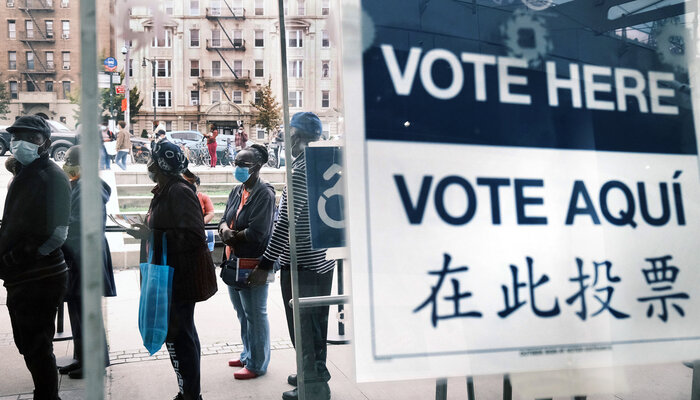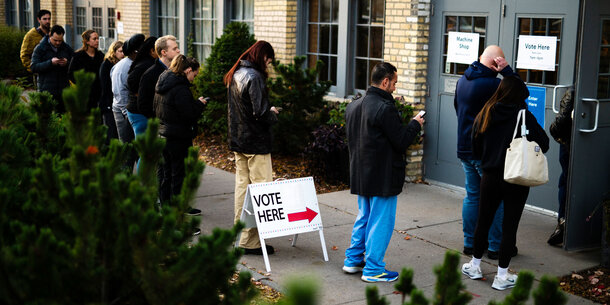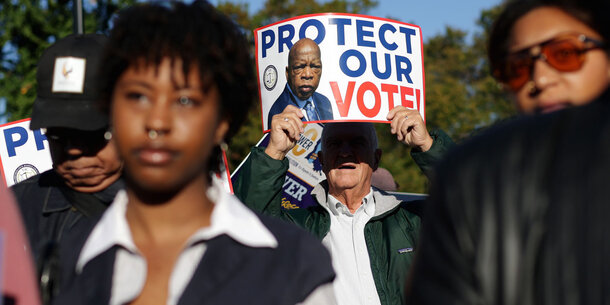You’re reading The Briefing, Michael Waldman’s weekly newsletter. Click here to receive it every week in your inbox.
It is a week of high drama in the Senate. Will our government defend voting rights and uphold fair elections throughout the country? If it becomes clear that Congress cannot act because of the filibuster, ever, and the courts step back, then states will have an open invitation to violate the rights of their citizens.
As the debate unfolds, unctuous voices will purr that there’s not really much at stake. That’s wrong.
Gerrymandering is reshaping legislative maps across the country. A new Brennan Center report documents an unprecedented bid to undermine the political power of Black, Latino, Asian, and Native American communities. At the same time, the maps decrease competition in Republican-controlled states.
Look at North Carolina, a closely divided battleground state. Republicans converted a congressional map that elected 8 Republicans and 5 Democrats into one that could elect 11 Republicans and just 3 Democrats. Even if Democrats win most of the vote, they might get less than a third of the seats. A state that is one-fifth Black might have only a single Black member of Congress come January.
Last year 19 states passed 34 laws making it harder to vote. There’s more to come, with dozens of restrictive bills pre-filed or carried over for action this year. Some are truly dystopian. A new bill in New Hampshire (H.B. 1567) would let citizens sue to remove election officials they don’t like. And in Missouri, S.B. 695 would require an election audit based on a petition signed by just 5 percent of registered voters.
Often these bad bills become bad laws. Last week, because of Texas’s new statute, one of its most populous counties rejected about half the absentee ballot requests for the upcoming primary.
All this will likely worsen a racial turnout gap. A Brennan Center report found that in 2020, nearly 71 percent of white voters cast ballots compared to only 58 percent of nonwhite voters. And in all but one of the states that were once covered by the Voting Rights Act, which the Supreme Court gutted, the gap between white and Black voters grew markedly.
And now Florida Gov. Ron DeSantis has proposed establishing a special police force to oversee state elections — the first of its kind in the nation according to the Washington Post. A handpicked police force, reporting to the governor, intimidating election officials and maybe voters: what could go wrong?
Don’t let opponents of voting rights gaslight you. Voter suppression and race discrimination aren’t just real — they’re a strategy. With midterm elections fast approaching, swift passage of the Freedom to Vote: John Lewis Voting Rights Act is the most effective and comprehensive way to protect our democracy from the forces trying to undermine it.



